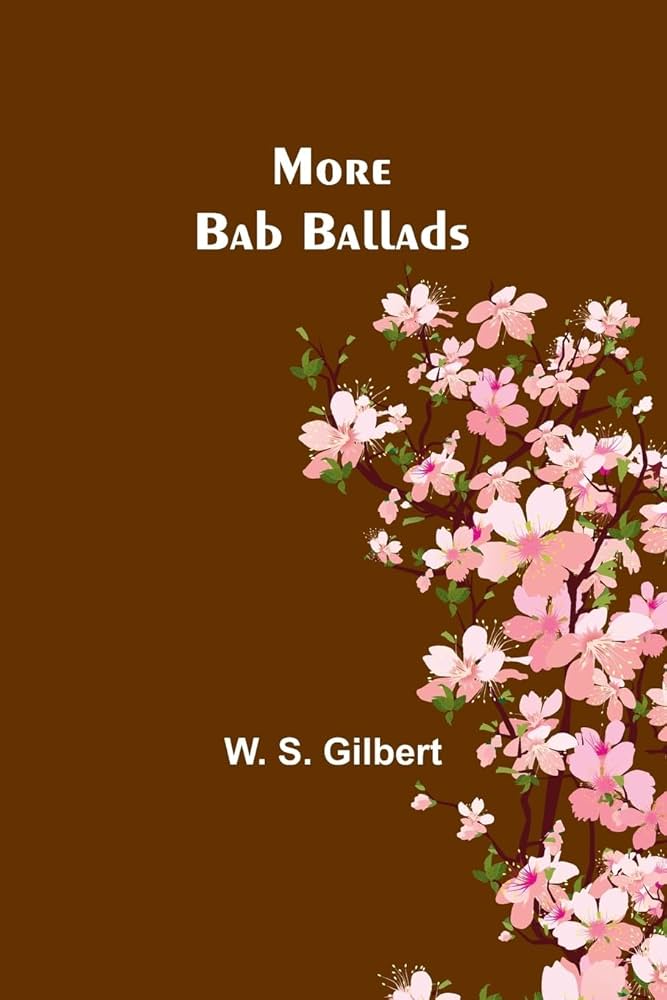Ballad: The Fairy Curate
byThe Fairy Curate begins with a magical union that defies societal expectations—a fairy woman of gossamer grace marrying a practical attorney from Ealing. Their marriage, though kept discreet from the outside world, thrives in its unusual intimacy, blending the mystical with the mundane. When their son Georgie is born, he inherits from both worlds: the sensibility of his human father and the quiet brilliance of his fairy mother. As he grows, it becomes clear that he carries something special—an intuitive spark that can’t be taught or explained. He chooses, quite unexpectedly, a path rooted in service and simplicity: to become a curate. Though fairies are rarely seen in clerical garb, Georgie pursues this path with an earnestness that surprises both mortals and magical folk alike.
Despite his half-fairy lineage, Georgie doesn’t rely on charm or theatrics to win favor. Instead, he works hard and shows real commitment to his duties. Yet, the influence of his mother cannot be dismissed. Behind his quiet success lies her subtle guidance—whispers during difficult exams, light winds that turn pages to the right verse, and sleepless nights eased by soft enchantments. Georgie never boasts of these invisible aids; he carries them with humility. His community sees him as a diligent, almost miraculous young curate, unaware that a gentle, magical hand is helping to keep him upright. It’s this balance of human effort and unseen fairy help that shapes his gentle character and sterling reputation.
In his pastoral work, Georgie becomes more than a figurehead in robes—he listens with sincerity, comforts without judgment, and somehow always arrives at the right place at the right time. Villagers, young and old, feel strangely comforted around him, unable to explain the sense of warmth that follows his presence. Sick children laugh again, broken fences mend with surprising ease, and gloomy sermons somehow end with hopeful notes. Georgie’s secret, however, remains just that—a secret. His fairy heritage is not displayed with fanfare. It exists quietly in the background, like the wind through trees or sunlight on altar stones. In honoring both his roots, Georgie shapes a life of remarkable grace that touches everyone he meets.
Yet, the story avoids becoming mere fantasy by staying grounded in Georgie’s internal struggle. His successes, while aided by magic, never feel unearned. He wrestles with whether to embrace his fairy abilities openly or keep them hidden to preserve his place in the human world. The decision to live modestly, choosing service over spectacle, marks his real strength. And though his mother watches from afar, she respects his choices, never interfering beyond what is necessary. Her role shifts from helper to silent supporter, allowing Georgie’s growth to unfold authentically. He doesn’t become great through spells alone—he becomes great because he chooses integrity over indulgence, humility over fame.
Georgie’s life isn’t without irony. Many parishioners praise him for miracles they assume are coincidences. His sermons—composed with the occasional nudge from a fairy breeze—stir hearts not just because of their content, but because of the way they’re delivered: with sincerity, lightness, and a tone that somehow feels otherworldly. Over time, the villagers stop questioning his uncanny grace and begin simply to trust it. The narrative makes a subtle point: sometimes, the most magical thing is quiet goodness that asks for nothing in return. And in Georgie, we see that goodness shine not in grand acts, but in the daily effort to serve, care, and believe in something larger than oneself.
As time passes, Georgie grows into his role not just as a clergyman, but as a bridge between two dimensions. Though no one sees his mother openly, some suspect that he is more than he appears. His story, while wrapped in whimsy, speaks to a deeper truth—that our background, no matter how unusual, can be a source of strength when it’s used with care. His ability to move between worlds, to understand both silence and celebration, makes him unique not for his powers but for the way he chooses to use them. Through Georgie, the story reminds us that destiny is not just about where we come from, but how we walk the path ahead, supported by faith, family, and the kind of magic that isn’t always visible but always felt.


